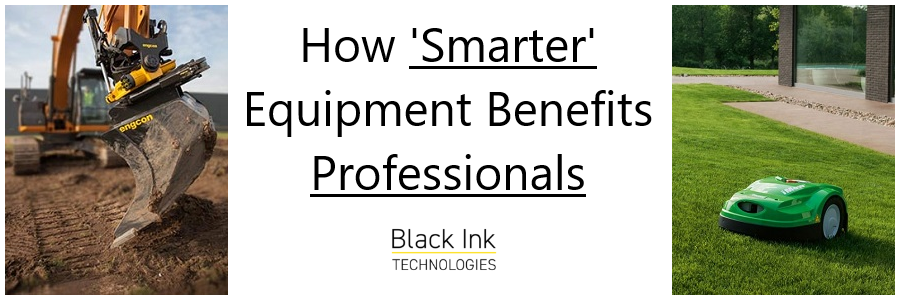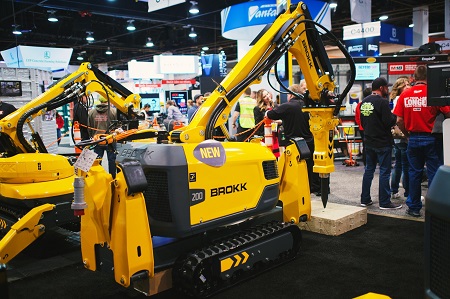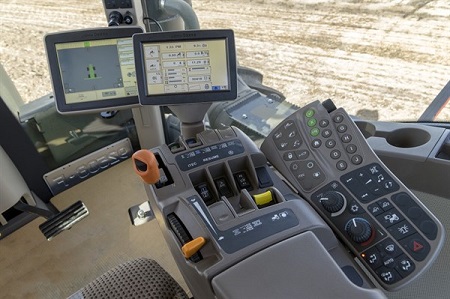How Smarter Equipment Benefits Professionals
by Black Ink Team

Whether you're tending a small garden or building a humongous skyscraper, the final product will generally be improved if the tools that you used are better equipped for handling the job. In addition, the work will generally go by quicker, your equipment won't get worn down as much, and your mood will be elevated (compared to if you owned less-sophisticated tools). ‘Harder’ tools can enable you to break through tougher obstacles and work more hours without taking a break, but ‘smarter’ tools can help you get the job done quicker, more precisely, and on a smaller budget.
There are lots of ways in which equipment manufacturers can make their products ‘smarter;’ all of which would help them to build a competitive advantage. They can integrate IoT (the Internet of Things) sensors into their equipment, to give their professional customers a way to monitor and/or control it through a networking interface (i.e. WiFi). Doing so would let landscapers, for instance, know which of their lawn mowers need maintenance the most (and should therefore not be taken on a job unless needed).

Another way equipment manufacturers can make ‘smarter’ products is by making it easier for professionals to repair them themselves. If a track loader manufacturer streamlined the hydraulics and standardized the pipe fittings on their product, for example, it would transform a once complicated problem (such as a burst transmission line) into a quick-and-easy fix. Implementing this design philosophy would satisfy a manufacturer's professional end users because their product line would be simpler and cheaper for them to maintain.
Manufacturers can also make their products ‘smarter’ by designing them so that, when they do break, the way in which they break is less detrimental to their overall effectiveness/efficiency. An example of this would be if a chain saw manufacturer created a chain that had longer teeth that were more brittle but were made out of a special material which would always fragment parallel to the edges (or ‘with the grain,’ as it were). This hypothetical innovation would not make their chains last any longer, but it would mean that they stayed sharp for longer.

There is plenty of demand for equipment that can do tougher work, as construction/demolition/landscaping/etc. professionals are constantly facing tough obstacles, but that doesn’t mean that equipment manufacturers should focus only on that market segment. Professionals who use equipment are also looking for machinery that can be maintained easier, function more reliably, and generally make their jobs less stressful. That is why equipment manufacturers should aim to make their products ‘smarter,’ not just harder.
